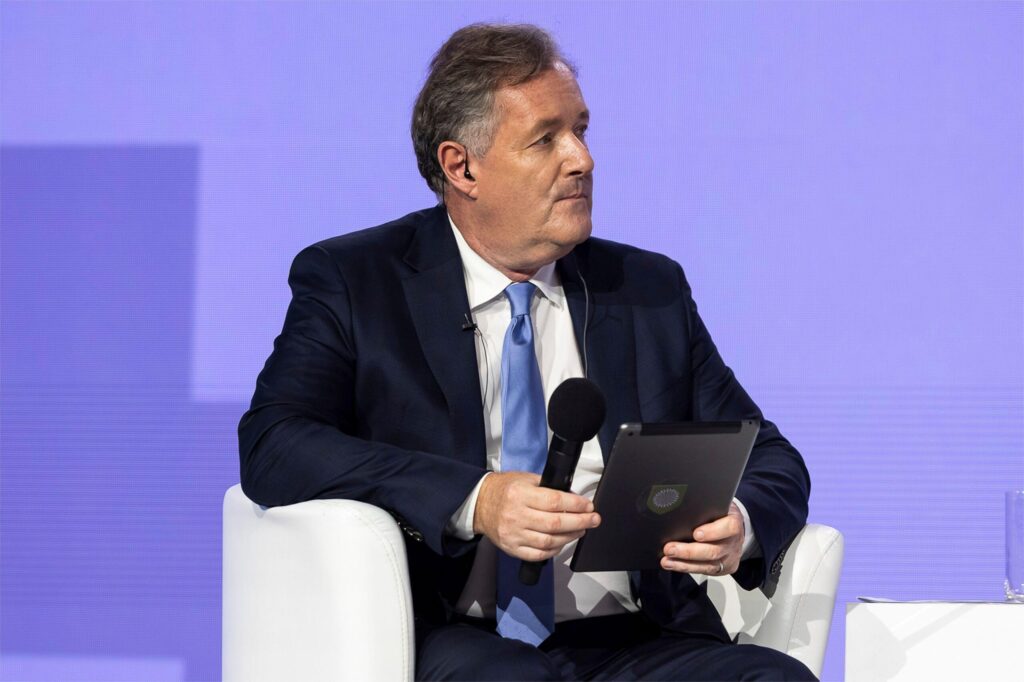Having missed out on the fun of Dubai’s Arab Media Summit (AMS) last year, I was relieved to gain swift and efficient entry to the World Trade Centre Halls for the 2025 version. It was well worth the 12-month wait, if only for the chance to meet up again with old friends.
In the digital age, media folk tend not to get together much in a physical sense any more.
The joys of Fleet Street hostelries on a Friday evening, when friends from different newspaper titles would gather to swap gossip and (sometimes) share stories, are lost to the current generation of journalists pecking non-stop at their keyboards like battery hens.
The AMS provides some of that essential camaraderie – without the liquid accompaniment, of course – and gets the grey matter working on the latest trends in the media industry.
In no particular order, here are the five things I learned from the first full day of the 23rd summit.
1. Arab media is alive and well, but it is different from the West
After nearly 20 years working in the region, I should know this by now, but the AMS brings it all together in one place.
The biggest forces in the main hall of the event were: the transformative power of technology and especially AI; and the importance of discipline and authority in reporting.
Technology and governance – that’s pretty much the Dubai template, and its media reflects it accurately.
2. Lebanon and the Lebanese continue to have a huge influence in Arab media
The troubled country has always had a disproportionate role in the news and advertising industries in the region, and Lebanese emigres have provided much of the talent.
Judging by the prominent places given to Beirut politicians on the opening day, the impact continues.
In a keynote, the Prime Minister Nawaf Salam told the audience “Lebanon is back, back to its Arab identity, back to the future,” to big applause.
3. AI will be the driving force for transformation in Arab media – but with a difference
AI will of course impact newsrooms from San Francisco to Shanghai, and all stops in between. But there are different considerations in the Arab world.
In her opening speech, Mona Al Marri, director general of the Dubai Media Office, warned of the need to “protect the Arab mind from any distortion” caused by AI, while in a keynote address Dr Ahmed Al Tayeb, grand imam of the Al Azhar mosque in Cairo, one of the biggest sources of authority in the Islamic world, told how digital platforms “eliminate clear lines between virtue and vice”.
4. Content is still king, but it has a new consort, or possibly two
In a nice aphorism, Faisal Abbas, editor-in-chief at Arab News, told one panel: “Content is king, but context is queen”, using the phrase to illustrate the need for proper understanding of the essential background to news stories in the region.
A couple of hours later, Claudius Senst, chief operating officer of Axel Springer, the German media giant, told the audience: “Content is king, but culture is queen,” to make a similar point.
So, who is queen? Context or culture? I think we should be told.
5. The brutal deployment of the ‘no comment’ is alive and well in the Arab media industry
On one of the most interesting panels of the day, Rani Raad, CEO of Abu Dhabi media group IMI, was asked how big an investor his company would be in the Daily Telegraph newspaper if current proposals go through to sell the UK newspaper to RedBird Capital, a partner of IMI.
“I cannot possibly comment on a live deal,” Raad responded, reasonably. The British government has capped foreign stakes in UK news media at 15 per cent, so he could at least have had a stab at that. Or maybe the deal is not quite done?
But it was an excellent first day, and can only get better.
Wednesday sees the appearance of Piers Morgan on a panel at the Arab Social Media Pioneers Summit, in conversation with National editor-in-chief Mina Al Oraibi.
It’s a shame I can’t be there to discuss football with the former Daily Mirror editor turned YouTube superstar.
Frank Kane is Editor-at-Large of AGBI and an award-winning business journalist. He acts as a consultant to the Ministry of Energy of Saudi Arabia



